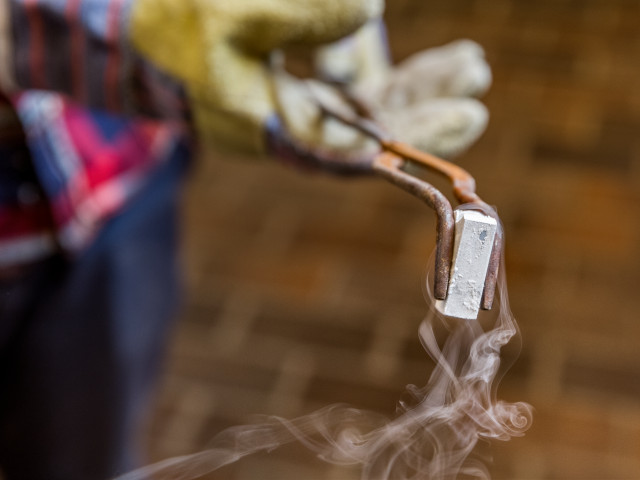Metoder för pulver syntes. Egenskaper och karakterisering av keramiskt pulver. Formning. Sintring och utveckling av mikrostruktur. Glas och glaskeramer. Kristalstruktur hos keramiska material; mekaniska egenskaper och fraktografi. statistiska tillvägagångssätt för brott. teoretisk hållfasthet. tidsberoende brott. Termiska egenskaper. Dielektriska, piezoelektriska, pyroelektriska och ferroelektriska keramer. Magnetiska keramer. Halvledare. keramik.
MH2037 Keramteknologi 6,0 hp

Information per kursomgång
Kursomgångar saknas för aktuella eller kommande terminer.
Kursplan som PDF
Notera: all information från kursplanen visas i tillgängligt format på denna sida.
Kursplan MH2037 (HT 2007–)Innehåll och lärandemål
Kursinnehåll
Lärandemål
Målet med kursen är att ge studerande grundläggande kunskap om framställninging och design av avancerade keramiska material. Egenskaperna för dessa material kommer att diskuteras tillsammans med hur dessa egenskaper uppstår och hur de är beroende av elektronstruktur, kristallstruktur och mikrostruktur. I kursen ingår föreläsningar, övningar och projektarbete.
Efter avslutad kurs ska studenten kunna:
- kunna skilja mellan traditionella och avancerade keramer.
- grundläggande kunskaper i tekniskt viktiga keramiska material
- känna igen och beskriva vanliga keramiska kristallstrukturer.
- med hjälp av defektnotation / termodynamik kunna förklara punktdefekter i keramer, inklusive användning av Brouwer (Kröger-Vink) diagram.
- förstå grunderna för keramiska bearbetning, även sintringsteori och korntillväxt.
- förstå grunderna för egenskaper hos avancerade keramiska material
- få en inblick i hur dessa egenskaper uppstår och hur de är beroende av elektroniska strukturer, kristallstruktur, mikrostruktur, bearbetning och design.
- lösa numeriska problem med mekaniska egenskaper (styrka, seghet), inklusive Weibullanalys.
- beskriva centrala elektriska, magnetiska och optiska tillämpningar av keramiska material.
Kurslitteratur och förberedelser
Särskild behörighet
MH2026 Introduktion till material och process design, eller liknande, eller
Kurser motsvarande minst 150hp från åk 1-3.
Kurslitteratur
Utdelatd material.
Richerson: 1998,Third edition, Modern Ceramic Engineering Marcel Dekker Inc., New York
Examination och slutförande
Betygsskala
Examination
- TEN1 - Tentamen, 6,0 hp, betygsskala: A, B, C, D, E, FX, F
Examinator beslutar, baserat på rekommendation från KTH:s handläggare av stöd till studenter med funktionsnedsättning, om eventuell anpassad examination för studenter med dokumenterad, varaktig funktionsnedsättning.
Examinator får medge annan examinationsform vid omexamination av enstaka studenter.
När kurs inte längre ges har student möjlighet att examineras under ytterligare två läsår.
Examinator
Etiskt förhållningssätt
- Vid grupparbete har alla i gruppen ansvar för gruppens arbete.
- Vid examination ska varje student ärligt redovisa hjälp som erhållits och källor som använts.
- Vid muntlig examination ska varje student kunna redogöra för hela uppgiften och hela lösningen.